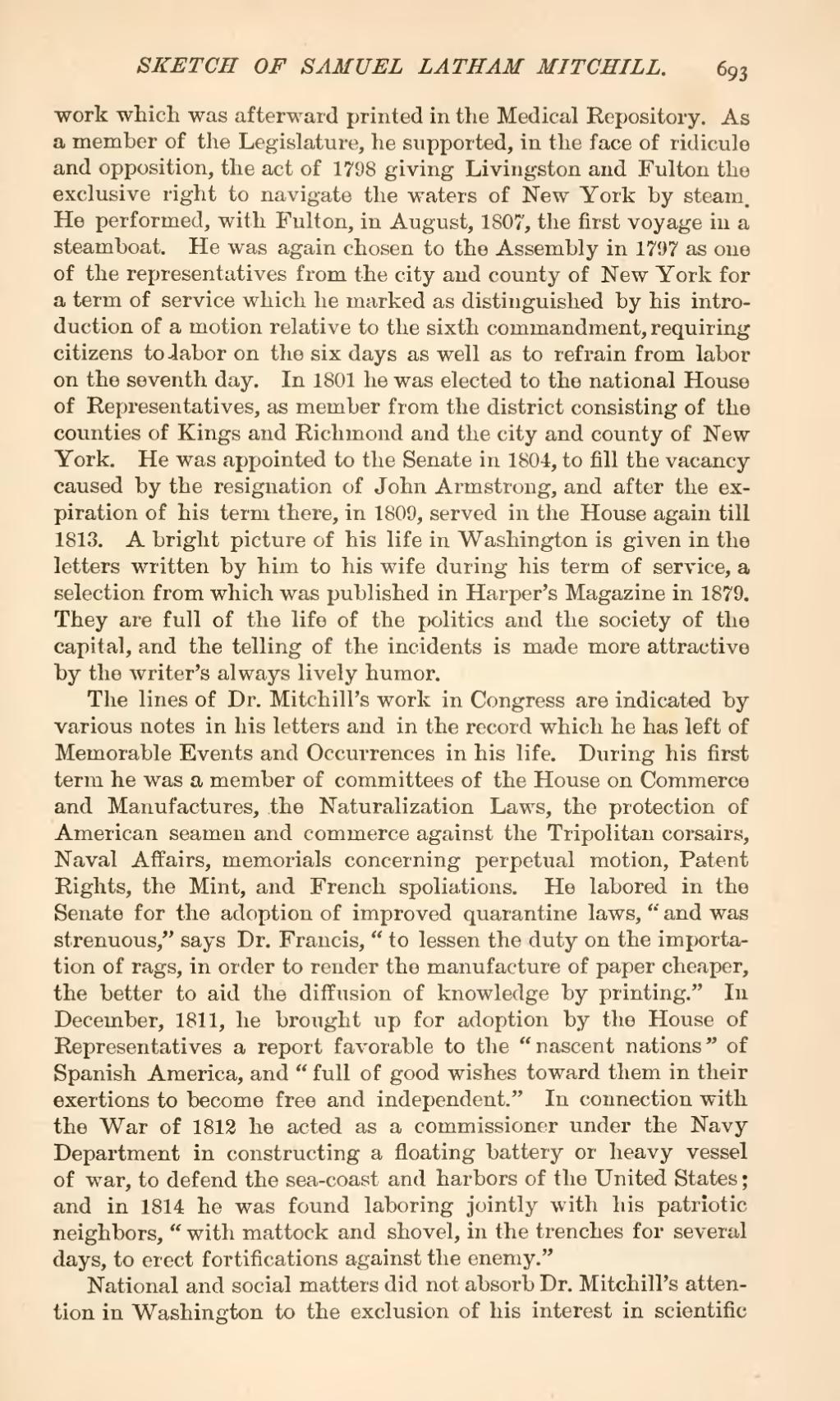work which, was afterward printed in the Medical Repository. As a member of the Legislature, he supported, in the face of ridicule and opposition, the act of 1798 giving Livingston and Fulton the exclusive right to navigate the waters of New York by steam. He performed, with Fulton, in August, 1807, the first voyage in a steamboat. He was again chosen to the Assembly in 1797 as one of the representatives from the city and county of New York for a term of service which he marked as distinguished by his introduction of a motion relative to the sixth commandment, requiring citizens to-labor on the six days as well as to refrain from labor on the seventh day. In 1801 he was elected to the national House of Representatives, as member from the district consisting of the counties of Kings and Richmond and the city and county of New York. He was appointed to the Senate in 1804, to fill the vacancy caused by the resignation of John Armstrong, and after the expiration of his term there, in 1809, served in the House again till 1813. A bright picture of his life in Washington is given in the letters written by him to his wife during his term of service, a selection from which was published in Harper's Magazine in 1879. They are full of the life of the politics and the society of the capital, and the telling of the incidents is made more attractive by the writer's always lively humor.
The lines of Dr. Mitchill's work in Congress are indicated by various notes in his letters and in the record which he has left of Memorable Events and Occurrences in his life. During his first term he was a member of committees of the House on Commerce and Manufactures, the Naturalization Laws, the protection of American seamen and commerce against the Tripolitan corsairs, Naval Affairs, memorials concerning perpetual motion, Patent Rights, the Mint, and French spoliations. He labored in the Senate for the adoption of improved quarantine laws, "and was strenuous," says Dr. Francis, "to lessen the duty on the importation of rags, in order to render the manufacture of paper cheaper, the better to aid the diffusion of knowledge by printing." In December, 1811, he brought up for adoption by the House of Representatives a report favorable to the "nascent nations" of Spanish America, and "full of good wishes toward them in their exertions to become free and independent." In connection with the War of 1812 he acted as a commissioner under the Navy Department in constructing a floating battery or heavy vessel of war, to defend the sea-coast and harbors of the United States; and in 1814 he was found laboring jointly with his patriotic neighbors, "with mattock and shovel, in the trenches for several days, to erect fortifications against the enemy."
National and social matters did not absorb Dr. Mitchill's attention in Washington to the exclusion of his interest in scientific

